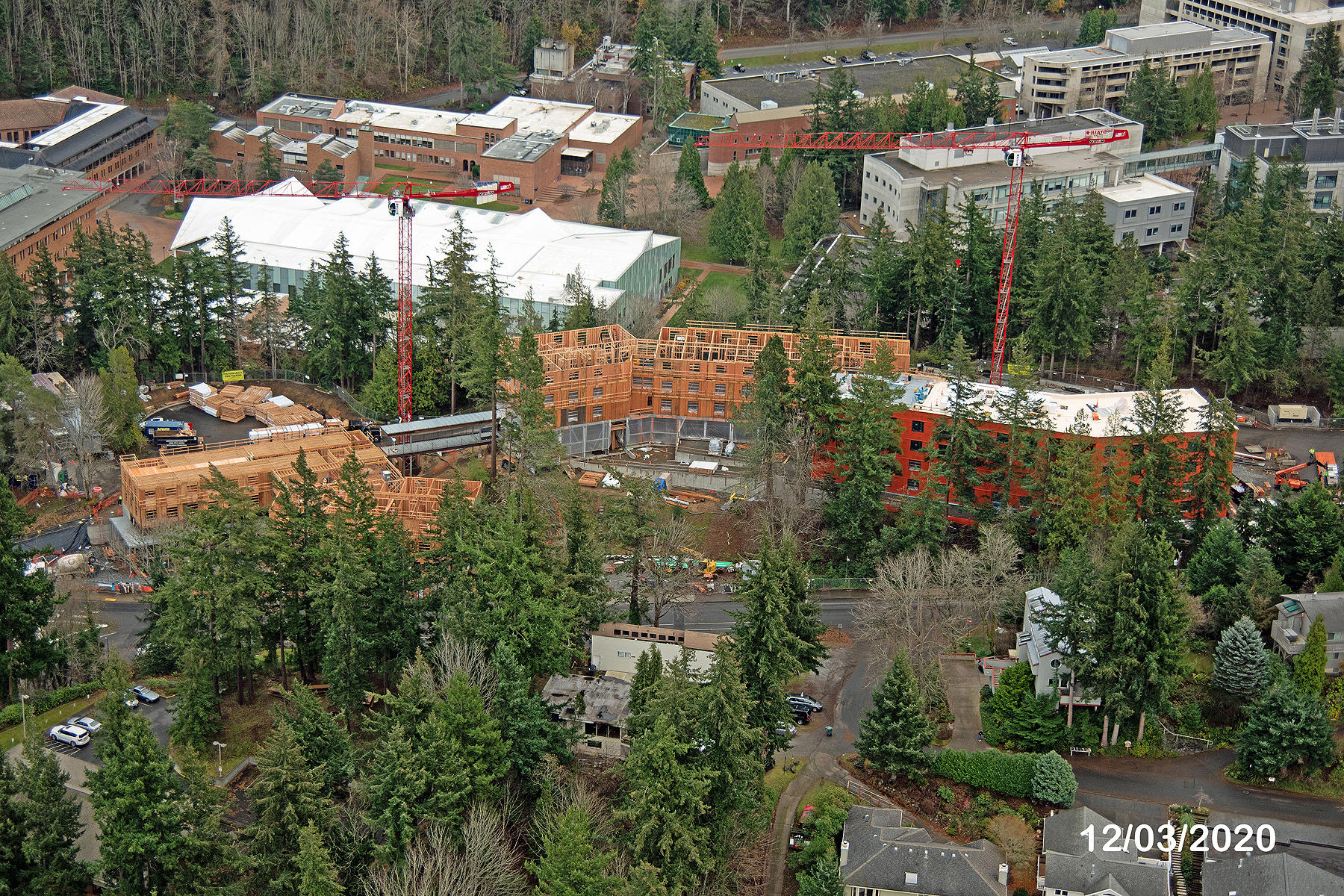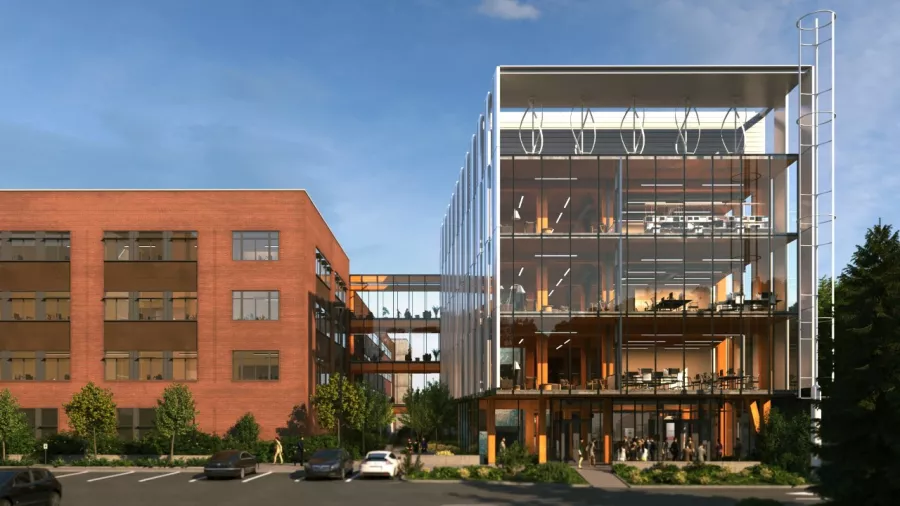The internationally acclaimed sustainable design expert Jason F. McLennan is guiding the net-zero energy/zero carbon design strategy for Kaiser Borsari Hall, a new 60,000-square-foot building that will house Western’s electrical engineering and computer science programs.
Kaiser Borsari Hall will exceed LEED standards for energy use, carbon, and other environmental indicators, and will pursue certification through the International Living Future Institute. When complete, Kaiser Borsari Hall will be the only carbon positive academic facility in the region, among a handful in the nation, and will significantly advance Western’s vision to become the region’s first carbon-neutral university campus. In response to both student and workforce demand, the project represents a public-private funding partnership that aims to leverage state funds with as much as $20 million in private donations through the Western Foundation’s “Building Washington’s Future” capital campaign. The building project will also include a renovation of spaces within the adjacent Communications Facility.
Kaiser Borsari Hall, now in the design phase, is one of three buildings in the works on Western’s Bellingham campus. Construction crews recently celebrated the “topping out” of the first section of a new residence hall after placing the highest beam in the structure in the Ridgeway complex on the site of the former Highland Hall. The Board of Trustees in December approved the naming of the new residence hall after Alma Clark Glass, Western’s first Black student.
Alma Clark Glass Hall will be about 85,000 square feet and will offer approximately 400 beds in a mix of room types. Designed with accessibility and inclusion in mind, the new building uses a series of ramps and an elevator to make the Ridgeway community accessible for the first time under the Americans with Disabilities Act (ADA), and offers gender-neutral restrooms throughout the building. Early participation in the design process by students and other community members facilitated the creation of a residence that aims to be barrier-free and welcoming for everyone. The building is expected to be ready for student occupancy in fall quarter 2021.
In addition to the progress on the new residence hall, crews have laid the foundation for the Interdisciplinary Science Building, and the structure is beginning to rise.
Construction on the 55,000 square-foot Interdisciplinary Science Building, located south of the Biology Building, began in April 2020 and is on target for completion in January 2022. The building will add essential teaching labs and active learning classrooms to meet the growing need for degree programs in Science, Technology, Engineering and Math (STEM) fields.

